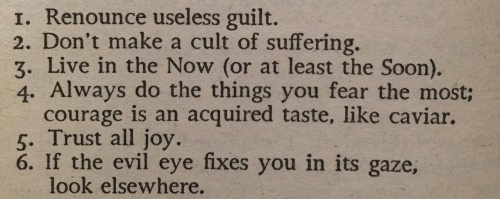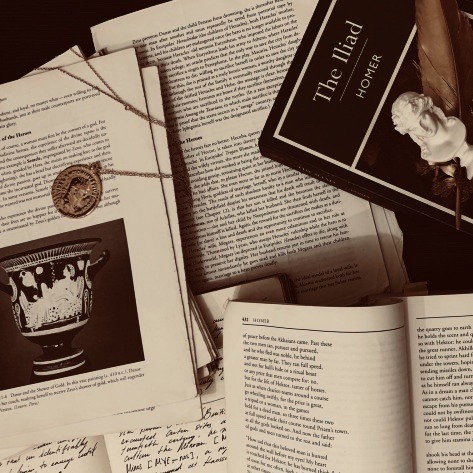— James Elkins, Pictures And Tears: A History Of People Who Have Cried In Front Of Paintings

— James Elkins, Pictures and Tears: A History of People Who Have Cried in Front of Paintings
More Posts from Ad-meliora-tendo and Others
you don’t need to go to a prestigious university or an exclusive boarding school to get dark academia vibes. you can be a pretentious brooding scholar at your local public high school as well. leave books on renaissance paintings and ancient rituals open on library desks. write ominous notes in the margins of textbooks. quote byron on the bathroom stall door. wear an unmistakable scent of perfume, so when you enter a classroom, everyone knows that you’ve arrived. cut your hair in the sink of the science lab. slip roses into random lockers. surround yourself with a few number of close friends and form your own secret circle. gain a reputation. have whispers follow you down the hallways. I would, however, advise against murder.
Tabula Rasa
Noun
[tab-yuh-luh rah-suh, -zuh, rey-]
1. a mind not yet affected by experiences, impressions, etc.
2. anything existing undisturbed in its original pure state.
Origin: In Latin tabula rasa means “erased tablet, a tablet rubbed clean (of writing).” Tabula has many meanings: “flat board, plank, table, notice board, notice, game board, public document, deed, will.” For schoolchildren the schoolmaster’s command Manum dē tabulā “Hand(s) off the tablet!” meant “Pencils down!” Rasa is the past participle of radere “to scrape, scratch, shave, clip.” The inside surfaces of a folded wooden tablet were raised along the edges and filled with wax for writing. The wax could be erased by smoothing with the blunt end of a stylus (more correctly stilus) or by mild heat. The Latin phrase is a translation of Greek pinakìs ágraphos “tablet with nothing written on it, blank tablet,” from Aristotle’s De Anima (Greek Perì Psychês, “On the Soul): “What it [the mind] thinks must be in it just as characters may be said to be on a writing tablet (pinakìs) on which nothing is yet actually written (ágraphos).” Tabula rasa entered English in the 16th century.
“The alarm wakes him, and he opens his eyes to a new day. He feels rested, reset, a tabula rasa.” - Lisa Genova, Inside The O'Briens, 2015


Death and the Maiden by Ana Sanchez
“it is a marvel that those red rose-leaf lips of yours should be made no less for the madness of music and song than for the madness of kissing. Your slim gilt soul walks between passion and poetry. I know Hyacinthus, whom Apollo loved so madly, was you in Greek days.”
Oscar Wilde to lover Lord Alfred “Bosie” Douglas, January 1893
Dark Academia things I do without noticing
- Having a ridiculous amount of tabs open of Wikipedia pages about ancient paintings, essays about Plato’s books and information about ivy league university’s.
- Listening to Hozier, Lana del Rey, classical music and slowed down versions of pop songs.
- Carrying notebooks, now twice the size as they were when I first bought them, filled with notes, paintings, lose papers with sketches and Latin words and their definition.
- Finishing a book and immediately starting another one.
- Staying up till sunrise while drinking tea and reading poetry.

How to Save Your Own Life, Erica Jong









Classic literature









as imperceptibly as grief - emily dickinson / picnic at hanging rock dir. peter weir / a summer wasting - belle & sebastian / jordan tiberio / nervous young inhumans - car seat headrest / little women dir. greta gerwig / francis forever - mitski / 4 aventures de reinette et mirabelle dir. éric rohmer / aristotle and dante discover the secrets of the universe - benjamin alire sáenz
“Love looks not with the eyes, but with the mind, And therefore is winged Cupid painted blind.”
— William Shakespeare, from “A Midsummer Night’s Dream“, published p. 1596


This is fucking fantastic. The Edelweiss Pirates.
-
 hersuavevoice liked this · 1 year ago
hersuavevoice liked this · 1 year ago -
 ambermalik liked this · 1 year ago
ambermalik liked this · 1 year ago -
 princessjouissance reblogged this · 3 years ago
princessjouissance reblogged this · 3 years ago -
 frenchsiren liked this · 4 years ago
frenchsiren liked this · 4 years ago -
 buckybarnesalways liked this · 4 years ago
buckybarnesalways liked this · 4 years ago -
 kafkascene liked this · 4 years ago
kafkascene liked this · 4 years ago -
 rhubarbdreams liked this · 4 years ago
rhubarbdreams liked this · 4 years ago -
 xriia liked this · 4 years ago
xriia liked this · 4 years ago -
 j0yce reblogged this · 4 years ago
j0yce reblogged this · 4 years ago -
 autonomouscosmonaut liked this · 4 years ago
autonomouscosmonaut liked this · 4 years ago -
 thegreeneyedabyss liked this · 4 years ago
thegreeneyedabyss liked this · 4 years ago -
 studylatin liked this · 4 years ago
studylatin liked this · 4 years ago -
 nakaraan liked this · 5 years ago
nakaraan liked this · 5 years ago -
 nadiyamaree reblogged this · 5 years ago
nadiyamaree reblogged this · 5 years ago -
 ekstahseez liked this · 5 years ago
ekstahseez liked this · 5 years ago -
 fatyams liked this · 5 years ago
fatyams liked this · 5 years ago -
 rabbit-shit-haikus liked this · 5 years ago
rabbit-shit-haikus liked this · 5 years ago -
 evilsufjanstevens liked this · 5 years ago
evilsufjanstevens liked this · 5 years ago -
 killthemallgodwillknowhisown liked this · 5 years ago
killthemallgodwillknowhisown liked this · 5 years ago -
 nadiyamaree reblogged this · 5 years ago
nadiyamaree reblogged this · 5 years ago -
 cejara liked this · 5 years ago
cejara liked this · 5 years ago -
 sensualites liked this · 5 years ago
sensualites liked this · 5 years ago -
 thelonelyqueenofthenight liked this · 5 years ago
thelonelyqueenofthenight liked this · 5 years ago -
 sheenjasmeet liked this · 5 years ago
sheenjasmeet liked this · 5 years ago -
 thisisbigtime liked this · 5 years ago
thisisbigtime liked this · 5 years ago -
 kun-s-t liked this · 5 years ago
kun-s-t liked this · 5 years ago -
 mariang-makiling reblogged this · 5 years ago
mariang-makiling reblogged this · 5 years ago -
 kawiiltn reblogged this · 5 years ago
kawiiltn reblogged this · 5 years ago -
 kawiiltn liked this · 5 years ago
kawiiltn liked this · 5 years ago -
 invisiblestringthatpulledme liked this · 5 years ago
invisiblestringthatpulledme liked this · 5 years ago -
 catherinebronte reblogged this · 5 years ago
catherinebronte reblogged this · 5 years ago -
 catherinebronte liked this · 5 years ago
catherinebronte liked this · 5 years ago -
 silentsiren liked this · 5 years ago
silentsiren liked this · 5 years ago -
 fleotende liked this · 5 years ago
fleotende liked this · 5 years ago -
 vel-locet liked this · 5 years ago
vel-locet liked this · 5 years ago -
 tosseddaisy liked this · 5 years ago
tosseddaisy liked this · 5 years ago -
 voulezou reblogged this · 5 years ago
voulezou reblogged this · 5 years ago -
 full---ofstarlight reblogged this · 5 years ago
full---ofstarlight reblogged this · 5 years ago -
 handsoflovers liked this · 5 years ago
handsoflovers liked this · 5 years ago -
 cutemercutio reblogged this · 5 years ago
cutemercutio reblogged this · 5 years ago -
 cutemercutio liked this · 5 years ago
cutemercutio liked this · 5 years ago -
 secifosseluce reblogged this · 5 years ago
secifosseluce reblogged this · 5 years ago -
 nemthere liked this · 5 years ago
nemthere liked this · 5 years ago

dark academia | xxi | ♂| INFJ-T | oct.24 — active
192 posts